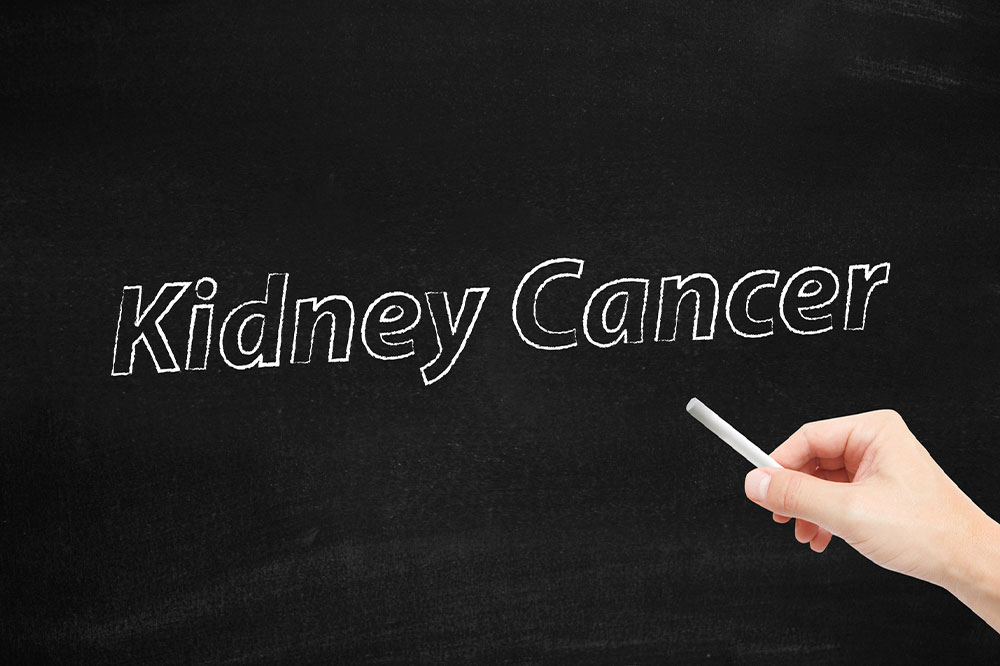The Symptoms and Stages of Kidney Cancer
Cancer that begins in the kidneys is known as kidney cancer. It develops when the cells in the body begin to grow at an uncontrollable rate. Blood in the urine, loss of appetite, unexplained weight loss, are a few common symptoms of the condition. Along with this, kidney cancer patients may experience flank pain, elevated blood pressure, tiredness, and fever. Radiation therapy, chemotherapy, and surgery are some ways to manage the condition.
Kidneys are two bean-shaped organs. Each kidney is around the size of your fist. The kidneys play an important role in the body. Their main function is to filter blood entering from the renal arteries.

In addition to this, the kidneys can control blood pressure by producing a hormone called renin. They also produce another hormone called erythropoietin, which instructs the bone marrow to generate more red blood cells.
How does kidney cancer develop and the survival rate
The specific causes of kidney cancer are not yet known. Doctors claim that a person suffers from kidney cancer when their kidney cells undergo mutations in their DNA.
Doctors can anticipate a patient’s possibility of recovery by assessing the symptoms and the size of the tumor. They also state that kidney cancer survival rates depend on the stage. A five-year survival rate, for instance, indicates the proportion of patients who lived at least five more years after receiving a cancer diagnosis. Although each person’s condition is different, understanding survival statistics by stage might help a patient understand their outlook better.
Symptoms of kidney cancer
In the early stages of kidney cancer, a person might not experience signs or symptoms. Over a period of time, several symptoms can appear, such as blood in the urine; continuous back pain; loss of appetite; unexplained weight loss; extreme tiredness; and fever for prolonged periods.
Kidney cancer stages
Staging is a method of describing cancer in terms of where it is and how far it has progressed. It helps medical professionals in choosing the most effective course of therapy. A medical team will stage cancer after a kidney cancer prognosis. They will assess how far the cancer has spread throughout the body. Kidney cancer has four fundamental stages. The earliest stage is Stage 1, while the most advanced stage is Stage 4. The most effective treatment alternatives are chosen with the assistance of this method and the medical team. Treatment will vary depending on the following factors:
The tumor’s location and size
The degree of the lymph nodes affected
The extent to which the cancer has spread to other tissues and organs.
Stage 1
In stage 1, the cancer is confined to the kidney, and is not bigger than 7 cm in size.
Stage 2
The cancer is only present in the kidney and has not yet spread outside. However, it is larger than 7 cm.
Stage 3
Regardless of size, the cancer has progressed to organs nearby besides the kidney.
Stage 4
The cancer has spread beyond the kidney to other tissues or distant organs.
Treatment
Stage 1
Here, the best course of action may be surgery. An operation can be done to remove the part of the kidney that contains the tumor. This procedure is known as partial nephrectomy.
Stage 2
The entire kidney might be removed at this point. This is known as radical nephrectomy. The fatty tissues around the kidney and one part of the tube connecting the bladder and the kidney is also removed. If the tumor is situated close to or involves the adrenal gland, the surgeon may remove this gland.
Stage 3
Radical nephrectomy may be necessary during Stage 3 kidney cancer treatment. The process is essential to remove the affected kidney, any adjacent cancerous tissue, lymph nodes, the adrenal gland, and fatty tissue.
Stage 4
At this stage of the disease, targeted treatment or immunotherapy might be advised. These methods of treatment are alternatives to surgery.
The exact causes of kidney cancer are still not known. However, one can take certain steps to lower the risk of the condition. Lowering blood pressure, if it is high, and getting enough exercise are a few ways to reduce one’s risk of kidney cancer. A person can also ensure that their daily fat intake is low and that they eat more fruits and vegetables regularly.

